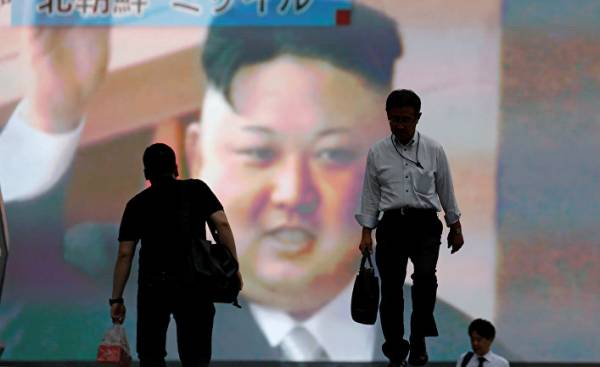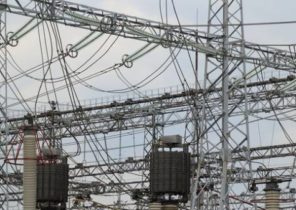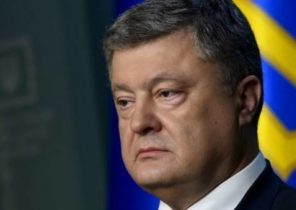
Atlantico: alert observers about the situation in North Korea hides and uncertainty about the consequences of the conflict, which may occur at the initiative of Pyongyang. Despite the unlikelihood of such a scenario, what could be the consequences of hitting South Korea or Japan, and particularly in the case of Intercontinental missiles?
Jean-Vincent Brisset: In theory, Pyongyang has impressive military means. 1 200 000 soldiers, 600 000 trained reservists, more than 5 million volunteers. Taking into account the total population of 25 million, this means that more than a quarter of North Koreans ready to fight. The number of traditional equipment is also impressive. 3 500 tanks, 20,000 artillery guns, 20 submarines, 500 combat aircraft. Anyway, the real combat capabilities of the armed forces is not so simple.
Equipment is outdated, logistic support limited. Concentration of forces at the demarcation line (Seoul with 10 million inhabitants, is only 50 kilometers to the South) will be quickly noticed.
However, even though the DPRK, apparently, not able to go to a frontal attack on its southern neighbors in conventional forces, its other features are much more difficult to assess and represent the strongest negative factor. There are hundreds of carriers, large-caliber rockets and short-range missiles that are probably capable of carrying not only the charges, but weapons of mass destruction (chemical or nuclear).
Whatever it was, often talking about long-range missiles with a nuclear warhead. To fend off this threat, of course, impossible. However, despite all preventive measures, which we will mention later, it should be understood that although the Koreans have achieved significant progress, the real possibility is not yet proven. If Kim Jong-Ynu will be able to launch a nuclear strike a few dozen kilometers from Seoul or a big Japanese city, the number of victims will be hundreds of thousands. Response whose shape while it is difficult to imagine will include at least the entire North-East Asia and will lead to severe human and material losses. A new factor compared with the conflict on the Korean Peninsula in 1950-ies is that the consequences in the medium term (at least material) affect the entire planet.
Alain Rodier: in the Midst of all of the current statements about the DPRK should keep a clear mind. To try to understand the situation, to begin to consider all technically. Even if “leader” Kim Jong-UN seeks primarily to generate nuclear power, North Korea still far from forming an operational strike capabilities. If you remember, in 2006, it had conducted five tests of atomic bombs and one hydrogen test, even on this issue, and there is no consensus. Power tested bombs ranges from 6 to 20 kilotons.
After the development of the nuclear charge necessary to allow for its delivery in the form of shells, bombs or missiles. To do so, he was small in size and weight, and was consistent with the imposed media restrictions, especially if we are talking about the rocket. For example, the first French atomic bomb under the name “Blue jerboa”, which blew up in the Sahara in 1960, represented a cube with the meter faces. Its capacity was 70 kilotons. Operating the first French bomb appeared on the Mirage IV, only four years later.
North Korea now also have to deal with this problem. Perhaps she is able to put a charge in the bomb or the rocket of small radius of action. In this case, under the threat may be South Korea and (to a lesser extent) Japan. According to Americans, the DPRK now has a 30 to 60 nuclear weapons, which in theory is enough to throw the nearest neighbors of a real Apocalypse. It should also be added a whole battery of chemical and biological weapons stored in reserve in warehouses in Pyongyang.
In such circumstances, what would be the response, primarily from the United States? According to the head of the American General staff Joseph Danford (Joseph Dunford), a US military intervention in North Korea may result in “an unprecedented loss of human lives.” Whether it will lead to a second Vietnam?
Jean-Vincent Brisset: it is Difficult to imagine a large-scale ground and air intervention of the United States in North Korea. It would be unacceptable to the American population and is extremely difficult in military terms. If, for unimaginable reasons, today, it is still going to happen in the future, it really will lead to extremely serious human losses, especially on the part of North Koreans who still adhere to the logic of a massive frontal attack. In contrast to what it was in Vietnam, us forces no longer going to fight, “keeping one hand behind his back” (a reference to the treatment of Bush in the nation in 1991), and will be ready to use the heavy weapons from a safe distance.
Anyway, all staffs, of course, was already “just in case” plans “pre-emptive” strikes. First of all, we can talk about the attacks on pads of Intercontinental ballistic missiles before their launch. If that’s not enough to make them repent, can be taken more stringent measures. It is likely, this could involve a series of coordinated attacks (so often comes Israel) to eliminate a significant part of the nuclear and/or ballistic objects. The US has long been silent about the data available to them on these objects, but they definitely have tactical information (and impact tools) that will allow a few minutes to drop the DPRK in the past 20 years in all these areas. Some observers regularly heard proposals about the impact of management regime and the elimination of the Kim Jong-UN, however, such an initiative (it is worth remembering the failure of the American RAID in 1986) is much more difficult and may even be counterproductive.
Alain Rodier: One or more nuclear explosions in one of these countries would entail immediate U.S. response, the more there on a permanent basis to serve American soldiers (often accompanied by family), who also will be among the victims. The plans of us nuclear strikes, no doubt, have already been developed in the Pentagon. It is possible even that the target coordinates already loaded into memory missiles on submarines and b-52 that can carry out the intervention in the area in the shortest possible time.
Anyway, I do not believe in the classical ground intervention that would entail too significant casualties: the Korean war (1950-1953) was a good lesson. That is, it will have absolutely nothing to do with the Korean war of 1950-ies, or the war in Vietnam.
— How it can change the balance of forces in the region in the event of a launch of an Intercontinental missile? What would be the most likely reaction of neighboring countries?
Jean-Vincent Brisset: If Pyongyang will conduct a direct attack with the launch of an Intercontinental or tactical missiles, with nuclear warheads or not, one of the “enemies”, i.e. South Korea, Japan or the United States (their territory or located in Asia troops), the first reaction of countries will be of a more military and not diplomatic. Russia and especially China has called for “restraint”, but probably still would, like all countries in the zone to point of impact. Especially if the aim of the operation is the formation of neutral and even more open to the world of North Korea.
In addition, one of the consequences of this attack will be the excuse for the deployment of missile defense systems, not only in this but in other regions of the world, to the great benefit of the American military-industrial complex.
Alain Rodier: In the just described scenario, North Korea will be no more, even if the main targets would be military targets (attacks on the cities no longer say, but the staffs are often there). A nuclear conflict would not only entail tens of thousands of victims, but will be a shock to the leadership (and population) of countries around the world. If North Korea will be the aggressor and will be destroyed in response, no nuclear power (primarily China and Russia) would not react militarily.
Anyway, here there is a serious problem for the future: will the North Koreans to create an effective Intercontinental missiles (with multiple warheads at high altitude) to be able to strike anywhere in the world in General and USA in particular? This is what causes the greatest concern of Washington, which has two options:
— forming an extremely costly missile defense system that ultimately still does not guarantee protection of American cities;
— apply the first mixed conventional/nuclear attack on the facilities of the development and deployment of this North Korean weapons with extremely high collateral damage.
This option meant the President trump when promised thunder and lightning the North Korean regime, if he continues to threaten the United States. It should be noted that us military doctrine does not preclude a pre-emptive strike to eliminate the threat. The decision on its carrying out belongs to the President of the United States.
— Why from the point of view of economic imperatives, diplomacy, and weight in the international arena, the scenario of an armed intervention of the United States is highly unlikely?
Jean-Vincent Brisset: we wrote a lot about that war for the most part come from the countries predators (especially the US) and mainly for economic reasons. In the case of North Korea, this argument does not work. The US, incidentally, could benefit from precision strikes on objects, as mentioned above, but have a lot to lose as a result of classic large-scale conflict. Besides, we already not the first month are seeing an increasing fatigue of the international community and especially Beijing, which has supported much more serious restrictive measures, than all that was with the first UN sanctions. If Washington can little to gain from intervention against Pyongyang, Beijing has much to lose. China is the only real leverage over Kim Jong-UN and is likely to take on greater responsibility in this matter.
Alain Rodier: the above-Described apocalyptic scenario is unlikely, since the reaction of other world powers are unpredictable. If the Americans decide first to use nuclear weapons against a country that they believe is a threat to their interests, then what will prevent Pakistan to do the same with India (and Vice versa), or Israel with Iran, whose position is a bit like North Korea? The situation echoes the novels of Tom Clancy (Tom Clancy) and “Dr. stranglove”.
In addition, she emphasizes the uncertainty of the future of France and points to the need to think about the modernization of its strategic forces.







